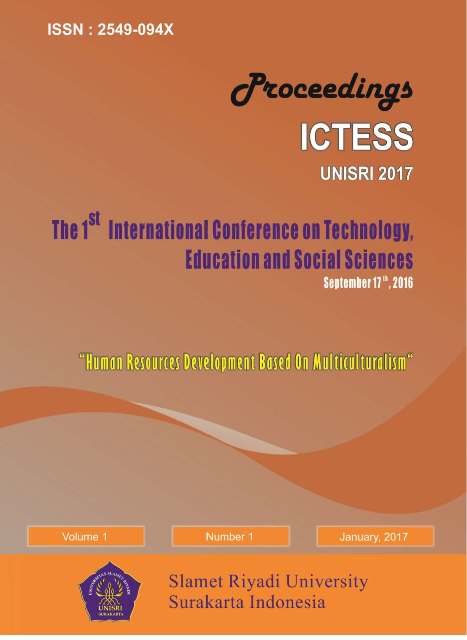Local Value Manifestation of Joglo Majapahit House In Perspective Learning History and Multicultural Society Dimension In The Rural Bejijong, Mojokerto
Abstrak
This article analyzes the values of local wisdom is wavering because of the falling value
of the character learners as a result of cultural changes leading to modernization. While
local cultural values still exist, although not commensurate with the modernization that
emphasizes instant results. Educational value can be answered about the waning value of
the character and be able to build a national identity through the values of local wisdom.
Local Values are very suitable to be applied in teaching history in Indonesia because
people are very diverse as the manifestation Joglo Majapahit. Joglo Majapahit is a
manifestation of ancient Javanese culture that includes elements of educational value that
can be integrated in the learning of history. Joglo Majapahit is a form of religious style
building that represents the relationship Kejawen vertical and horizontal. The vertical
relationship between man and God and Nature while horizontal relationships between
humans and other humans. In Mojokerto, Joglo Majapahit very closely linked to the life
of an agrarian society and religious systems Javanese kingdom of Majapahit period. This
research is conducted in the village of Bejijong, District Trowulan, Mojokerto. According
to Henry Maclaine Pont geographical location Bejijong is in the Northern Capital of
Majapahit Kingdom of Wilwatikta (Trowulan). Bejijong village serve the division limit
religious system in the Kingdom of Majapahit between Dharmadhyaksa Ring Kasogatan
(regulator Buddhism) is located in Northern Trowulan and Dharmadhyaksa Ring
Kasaiwan (regulator Hinduism) is located in the South side Trowulan. Therefore form
Joglo Majapahit is a manifestation of a cultural cauldron of Hindu and Buddhist people
that represent the multicultural society. The plurality can be found today because the
region Bejijong are found relics characteristically of Buddhist temples and relics of the
tomb characteristically Hindu.
Keywords: Joglo Majapahit, Learning History, Local Value, Multicultural Society

